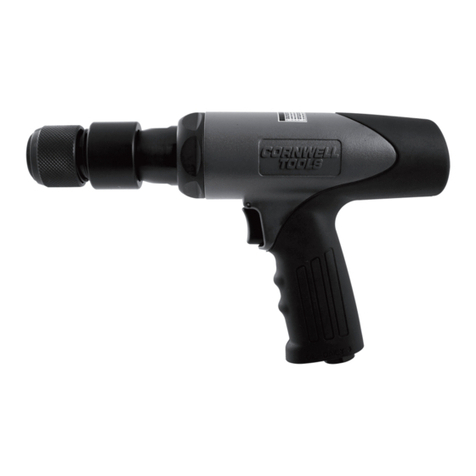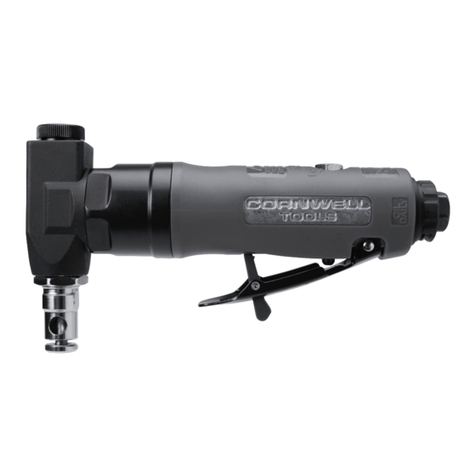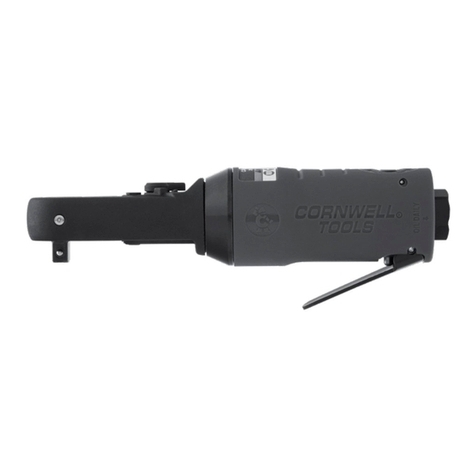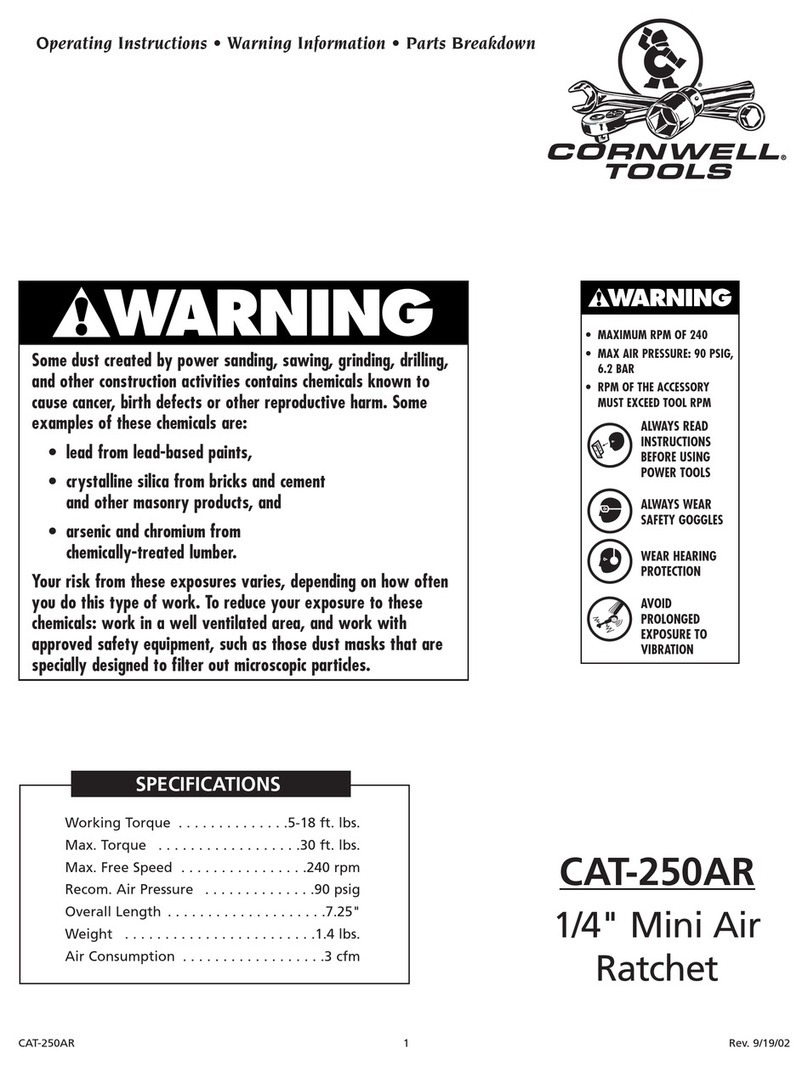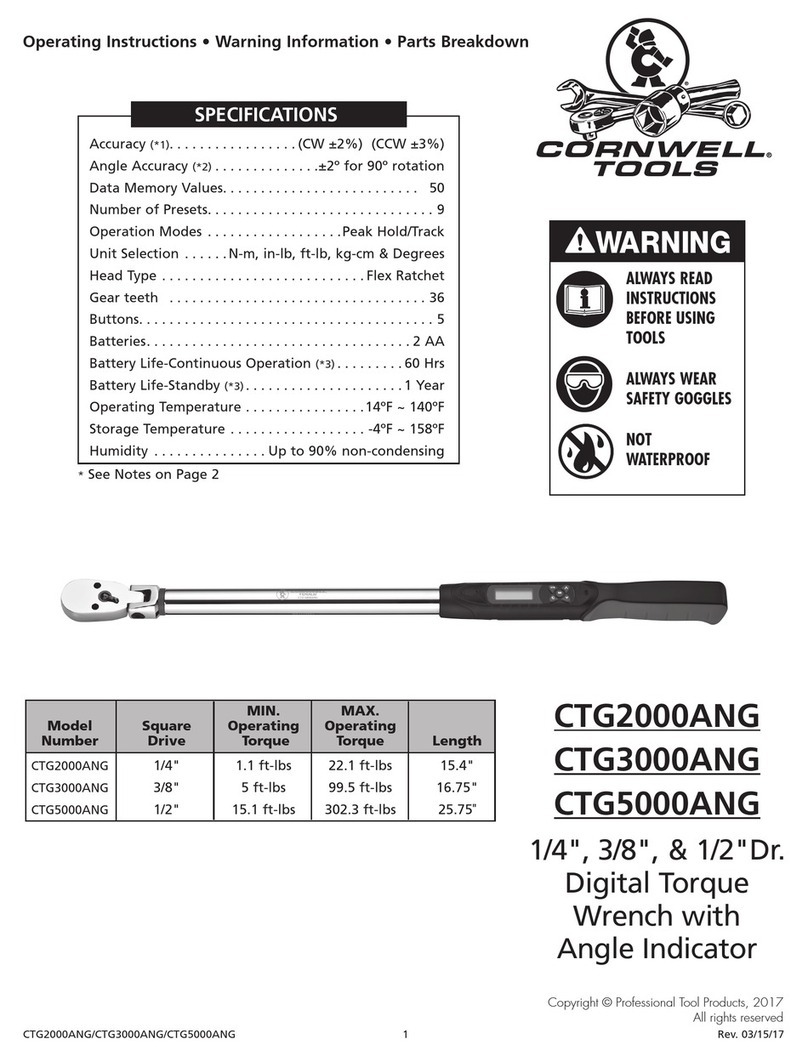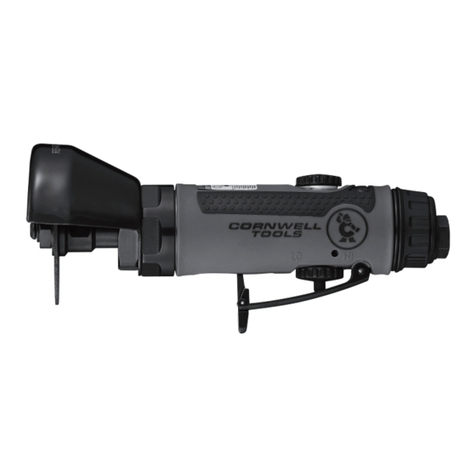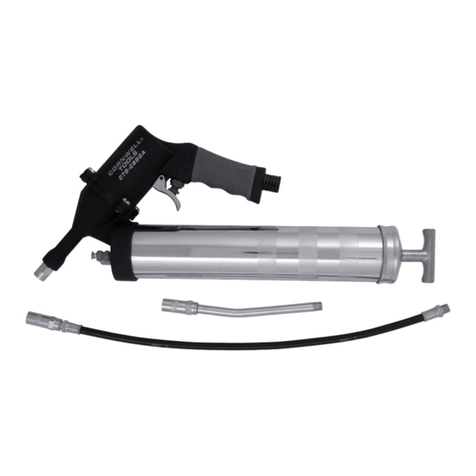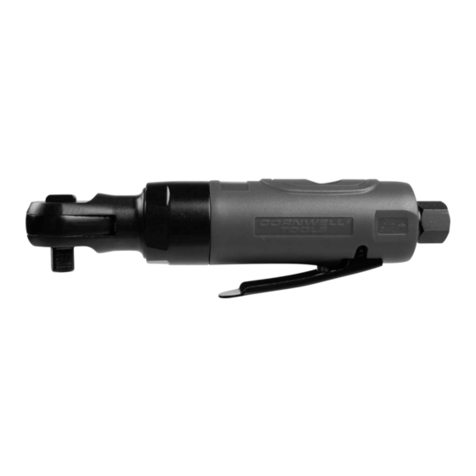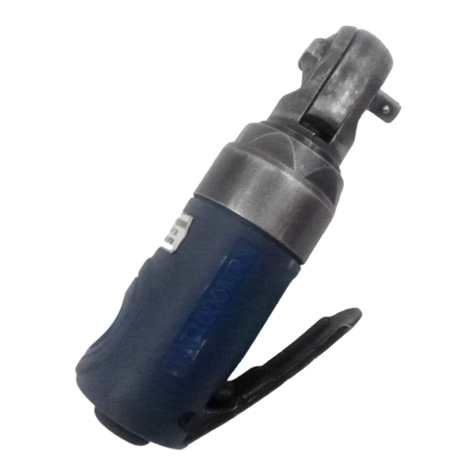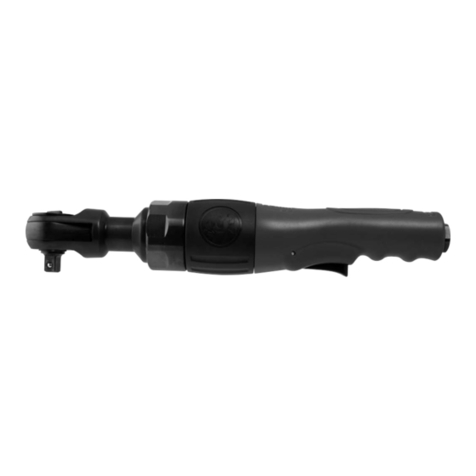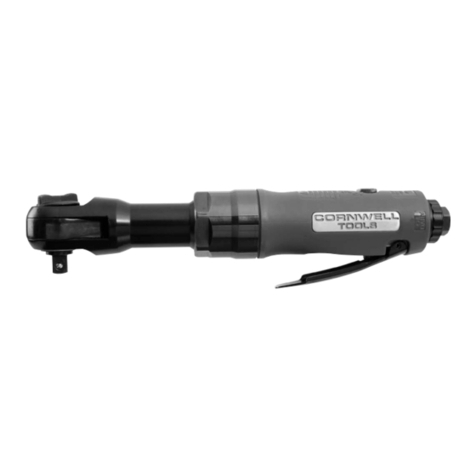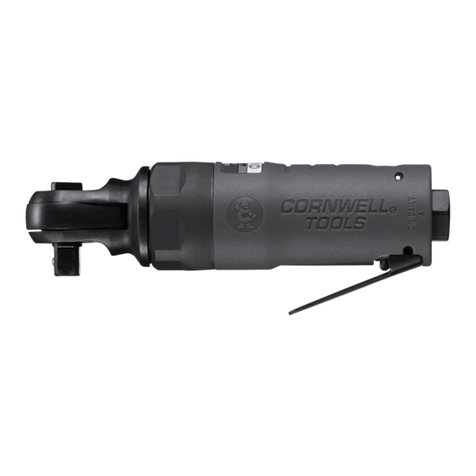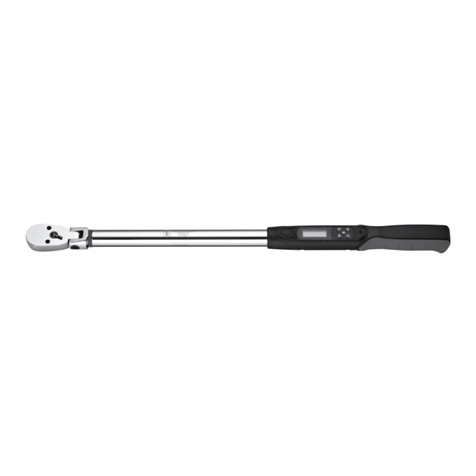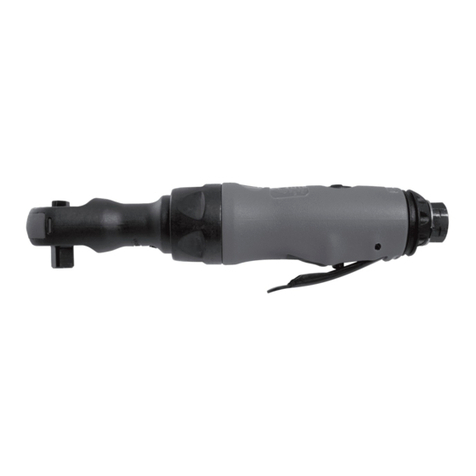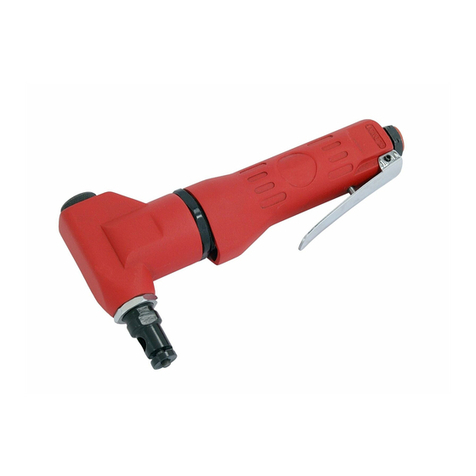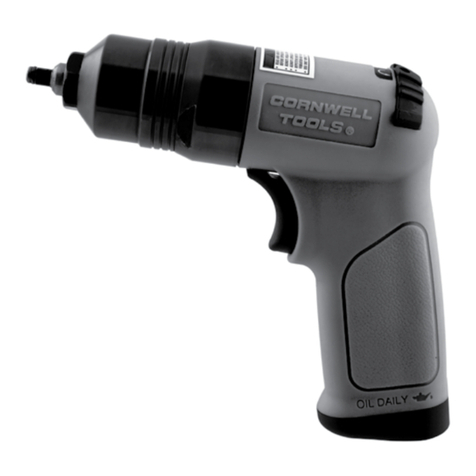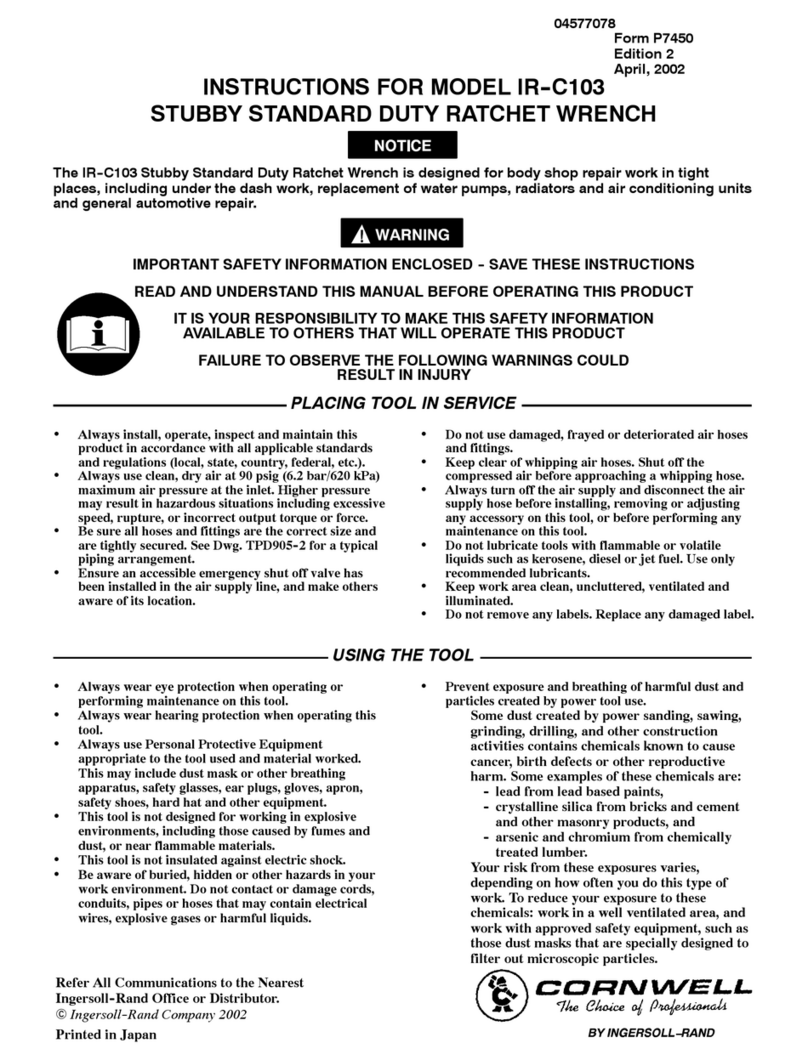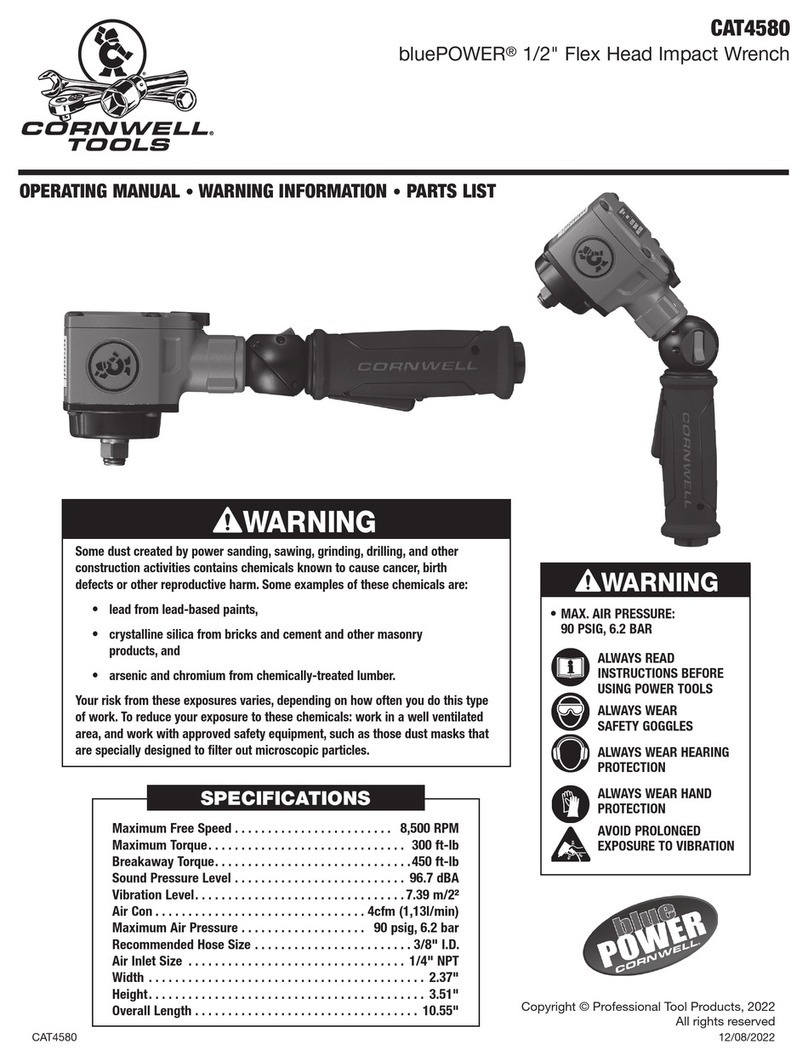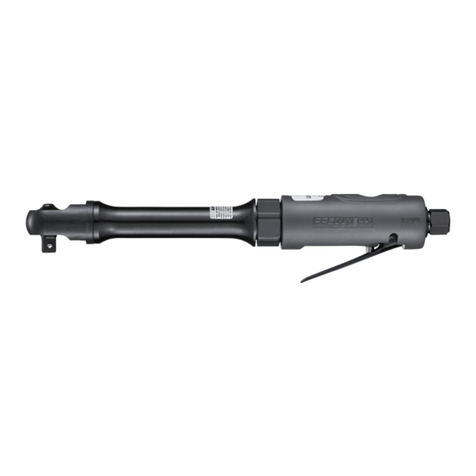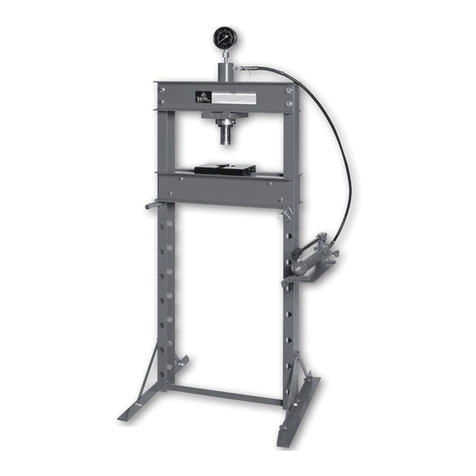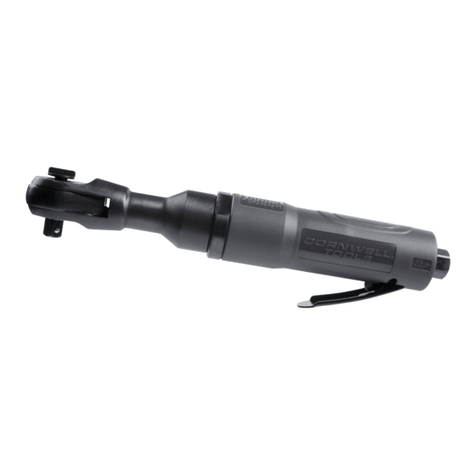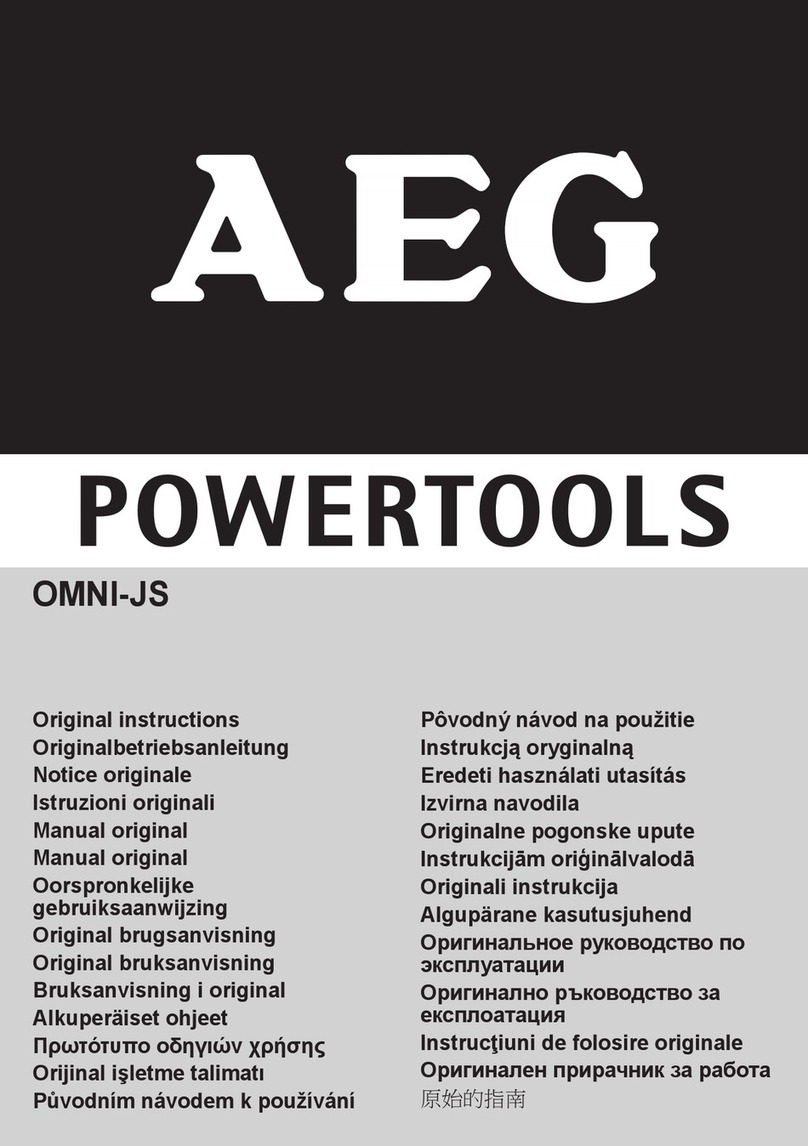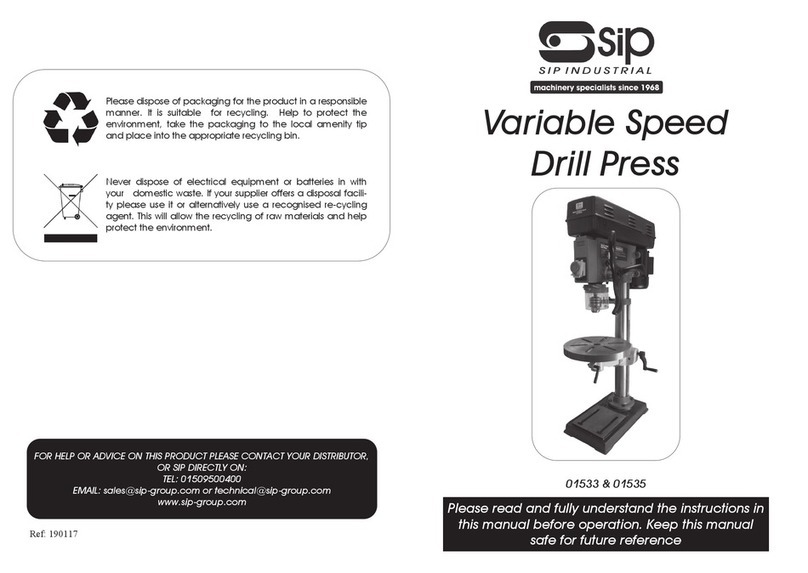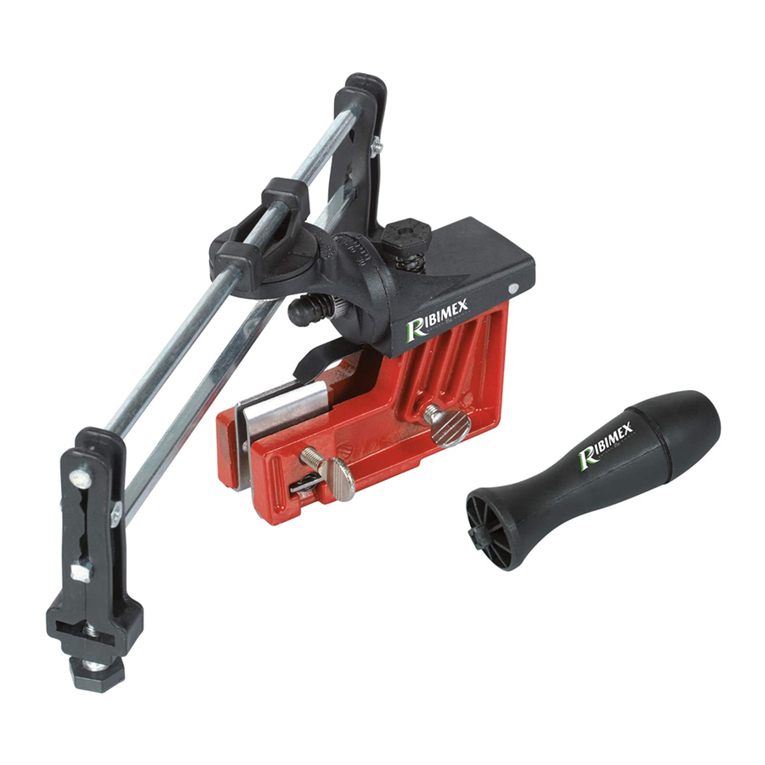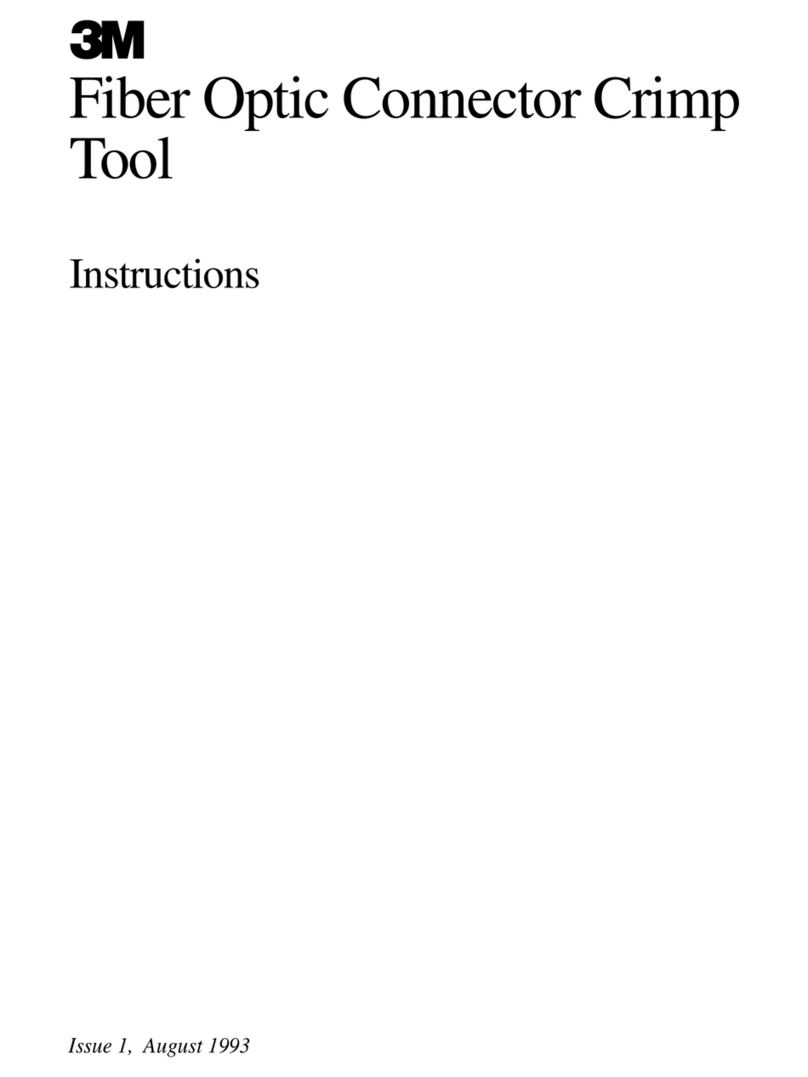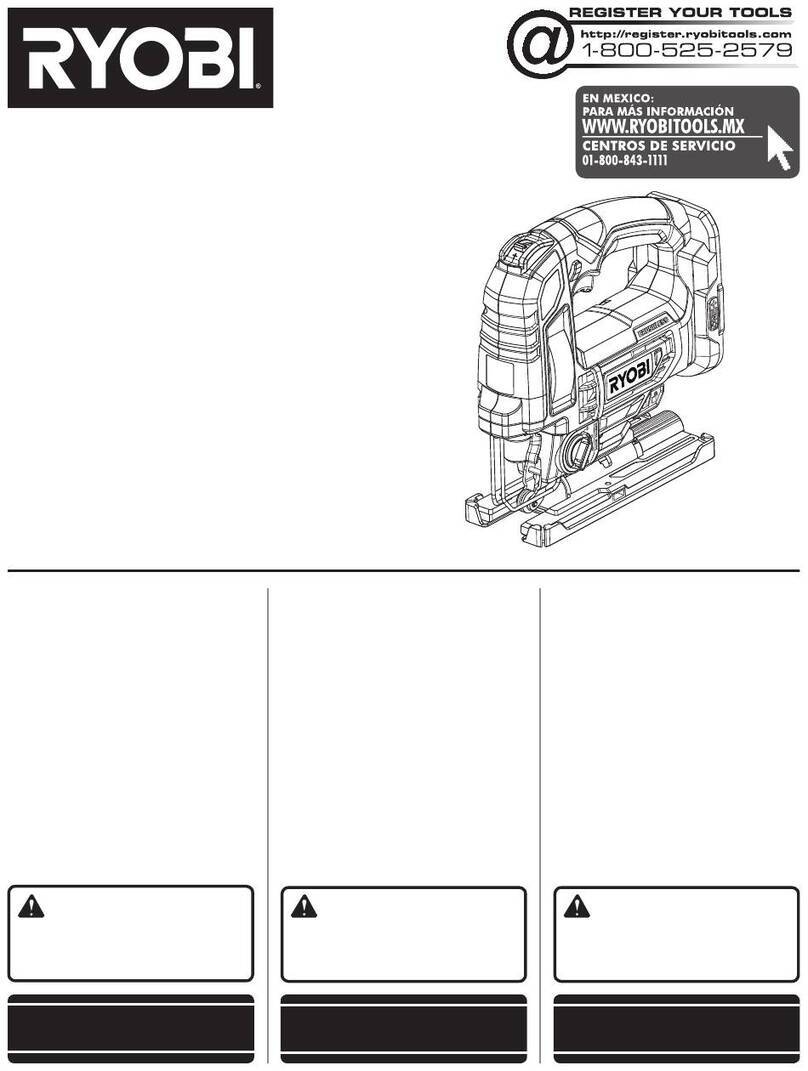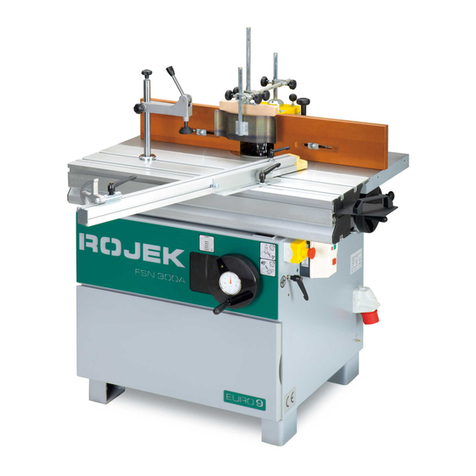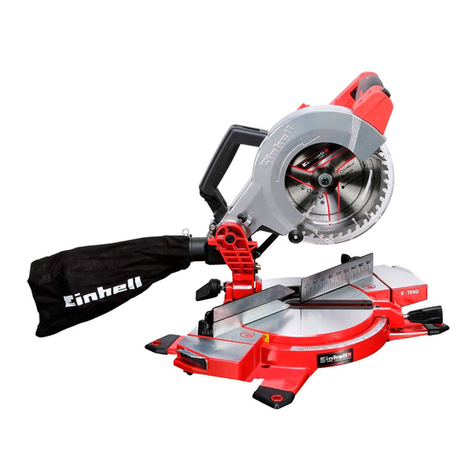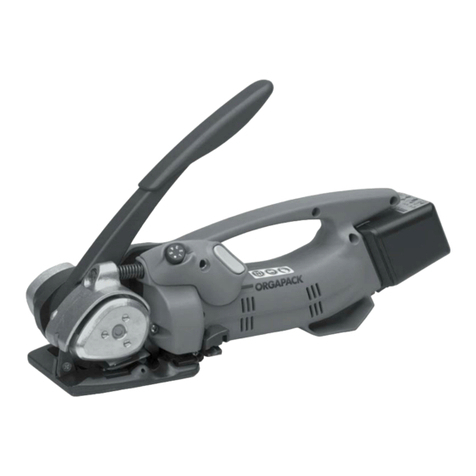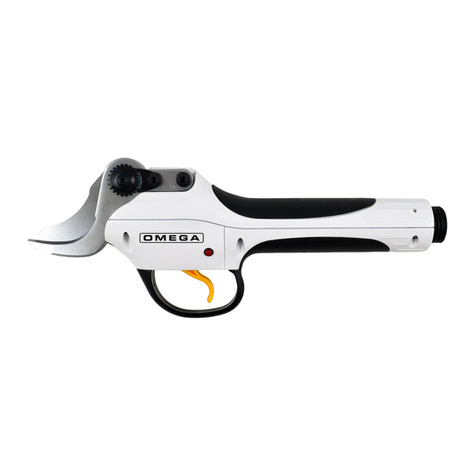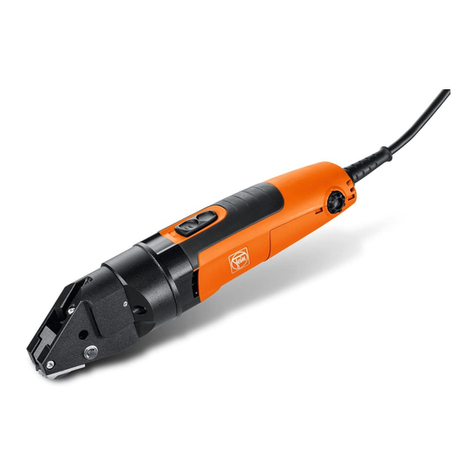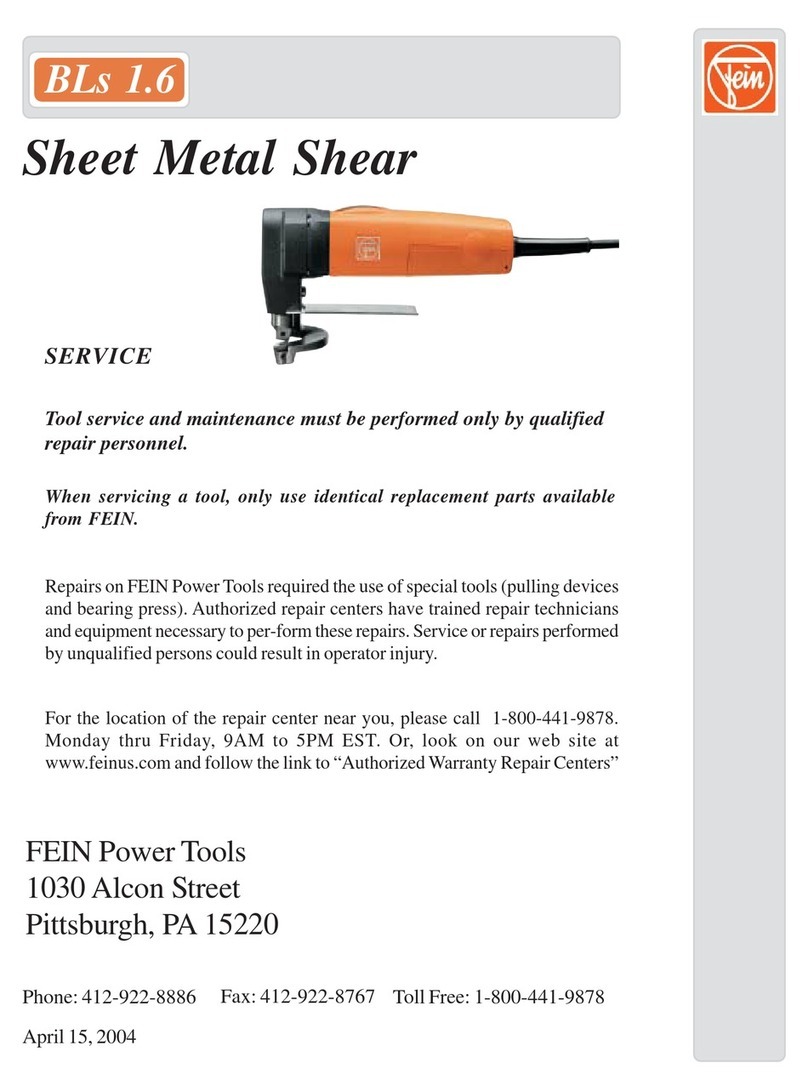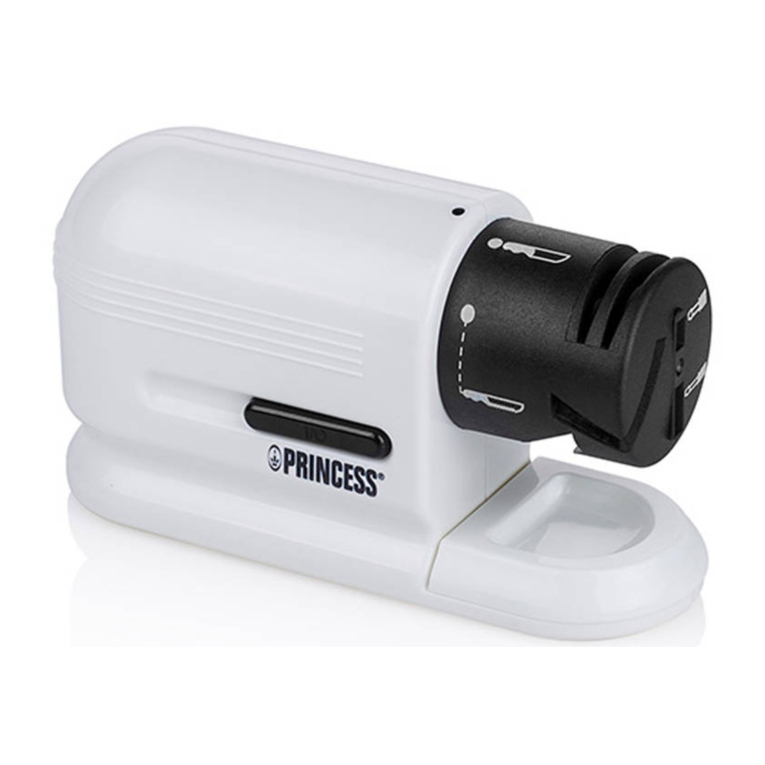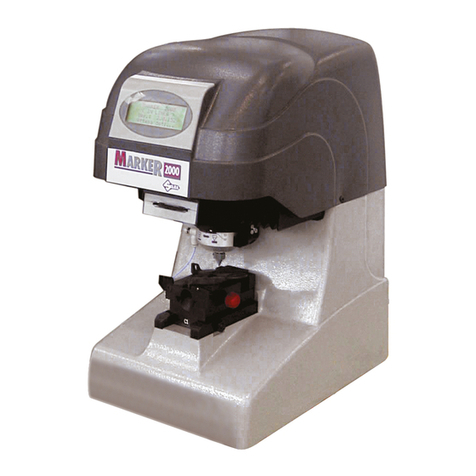
CAT-4000SD 4 Rev. 07/20/07
Nipple
Leader Hose
Whip Hose
Nipple Filter
Air Supply
Regulator
Quick Coupler
Oiler
Drain Daily
Do Not Install
Quick Coupling
Here
Operating Instructions • Warning Information • Parts Breakdown
Air Supply
Tools of this class operate on a wide
range of air pressures. It is recommended
that air pressure of these tools measures
90 PSI at the tool while running free.
Higher pressure (over 90 psig; 6.2 bar)
raises performance beyond the rated
capacity of the tool which will shorten
tool life because of faster wear and could
cause injury.
Always use clean, dry air. Dust, corrosive
fumes and/or water in the air line will
cause damage to the tool. Drain the air
tank daily. Clean the air inlet filter screen
on at least a weekly schedule. The
recommended hookup procedure can
be viewed in the above figure.
The air inlet used for connecting
air supply, has standard 1/4" NPT.
Line pressure should be increased to
compensate for unusually long air hoses
(over 25 feet). Minimum hose diameter
should be 3/8" I.D. and fittings should
have the same inside dimensions and be
tightly secured.
Operation
This ratchet wrench is rated at 1/4" USS
bolt size. Rating must be down graded for
spring U bolts, tie bolts, long cap screws,
double depth nuts, badly rusted conditions
and spring fasteners as they absorb much
of the impact power. When possible,
clamp or wedge the bolt to prevent
springback.
Soak rusted nuts in penetrating oil and
break rust seal before removing with
ratchet wrench. If nut does not start to
move in three to five seconds use an
impact wrench. Do not use impact
wrench beyond rated capacity as this
will drastically reduce tool life.
The forward/reversing button is used to
change the rotation of the tool. When the
button is set to the right, the tool will turn
in a right hand rotation. When the button
is set to the left, the tool will turn in a left
hand rotation.
NOTE: Actual torque on a fastener is
directly related to joint hardness, tool
speed, condition of socket and the time
the tool is allowed to impact.
Use the simplest possible tool-to-socket
hook up. Every connection absorbs energy
and reduces power.
Troubleshooting
Other factors outside the tool may cause
loss of power or erratic action. Reduced
compressor output, excessive drain on
the air line, moisture or restrictions in air
pipes or the use of hose connections of
improper size or poor conditions may
reduce air supply. Grit or gum deposits
in the tool may cut power and may be
corrected by cleaning the air strainer
and flushing out the tool with gum solvent
oil or an equal mixture of SAE #10 and
kerosene. If outside conditions are in
order and the tool continues to perform
erratically, disconnect tool from hose
and take tool to your nearest authorized
service center.
Lubrication
Lubricate the air motor daily with quality
air tool oil. If no air line oiler is used, run
1/2 oz. of oil through the tool. The oil
can be squirted into the tool air inlet or
into the hose at the nearest
connection to the air supply, then run the
tool. Overfilling will cause a reduction
in the power of the tool. Grease ratchet
housing as needed (2 grease fittings).
Cornwell Tools™ Limited Warranty
Cornwell Tools warrants the CAT-4000SD for a period of 2 years
to the consumer. We will repair any air tool covered under this
warranty which proves to be defective in material or workmanship
during the warranty period. In order to have your tool repaired,
return the tool to any Cornwell Tools Authorized Warranty Center,
freight prepaid. Please include a copy of your proof of purchase
and a brief description of the problem. The tool will be inspected
and if any part or parts are found to be defective in material
or workmanship, they will be repaired free of charge and the
repaired tool will be returned to you freight prepaid.
This warranty gives you specific rights. You may also have other
rights which vary from state to state.
The foregoing obligation is Cornwell Tools' sole liability under
this or any implied warranty and under no circumstances shall
Cornwell Tools be liable for any incidental or consequential
damages.
Note: Some states do not allow the exclusion or limitation of
incidental or consequential damages so the above limitation or
exclusion may not apply to you.
4
